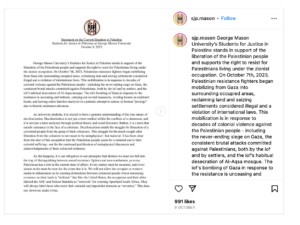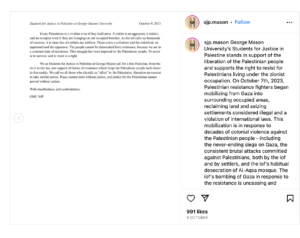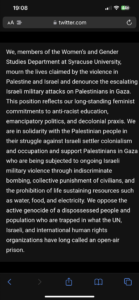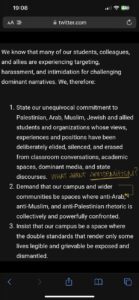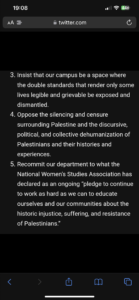Instead of using a trans-inclusive definition of gender discrimination, conservatives and TERFs want to base claims of discrimination on assigned sex at birth, rather than gender identity or presentation. They call this “sex-based rights.”
The problem with this argument is that transphobia is a form of sex discrimination. By telling members of one assigned sex that they may not be referred to by pronouns that align with their gender identity, wear the clothing that suits their gender presentation, or that they cannot get treatment or surgeries that help alleviate gender dysphoria, they are practising sex-based discrimination. I’m not the only one to use this argument—the United States Supreme Court, not known for its progressivism, ruled in Bostock that homophobic and transphobic discrimination in the workplace were unconstitutional, since they targeted people for discrimination based on sex assigned at birth.
It is more accurate to call “sex-based rights” sex-based restrictions. Just as digital rights management is designed to restrict how people use and distribute computer files, the principle of sex-based rights is designed to restrict the range of gender expressions and identities based on one’s assigned sex. Supporters of DRM say they want to protect and empower copyright holders (typically large corporations). And supporters of sex-based restrictions say they want to protect and empower women.
But sex-based restrictions don’t empower or protect women. Instead, they are sumptuary laws harking back to the Victorian era. Or in contemporary society, the laws in theocratic Middle Eastern states like Iran, Afghanistan and Saudi Arabia. These restrictions also reinforce the anti-feminist idea that one’s assigned sex at birth defines one’s moral character. That if you were assigned male, you are automatically a rapist and pervert, and if you were assigned female, you are a delicate flower in need of protecting. These are patriarchal stereotypes that merely reinforce the idea that men and women will never be equal.
Some feminists—the ones who believe in inculcating gender equity in future generations—focus on cultivating gentleness and compassion in men, and assertiveness and strength in women. Supporters of sex-based restrictions do not do that. Instead, they reinforce the idea men are strong, dominating and predatory, and women are delicate, weak and nurturing. This isn’t feminism. In fact, it’s quite the opposite—it is merely the inverse of patriarchal “values.”
Homophobia and transphobia are sexism. Neither should be welcome in a tolerant society.
- (Come to think about it, the constant use of “sex” feels very old-fashioned, too—feminist activists started shifting towards “gender” fifty years ago. I prefer this not just for political reasons—“sex” is too easily confused with sexual intercourse.) ↩
